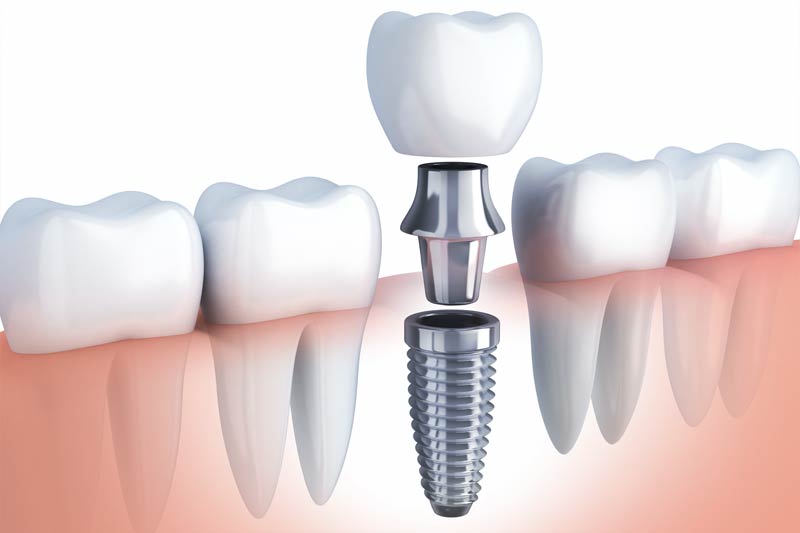Dental Insurance at Charm City Smiles

At Charm City Smiles, we’re trained to accommodate every patient’s unique circumstances. We accept a wide variety of insurances and offer special saving plans for patients without insurance.
Dental Savings PlanRecord Release Form
Post Op Instructions For Tooth Extraction
Please make sure to bring all your insurance information to your appointment so that we may best serve you.
We accept most major insurances, call to confirm if your insurance is accepted at 410-913-5700.
Insurance Accepted - ask us for which providers we accept.

We finance through Care Credit, ask us how

What Every Patient Can Expect
At our practice, every patient can expect to be treated with prompt service at their specified appointment time. Our patients can also look forward to a comfortable experience. We understand that visiting a new dentist can be stressful, which is why our practice works actively to accommodate all patients and alleviate any fears they may have about a new dentist or dentistry treatments. Familiarizing yourself with our practice, services, and our dentist is a great first step to creating a long term and comfortable experience with dentistry.
POST SURGERY INSTRUCTIONS
ABLEEDING: Slight bleeding after surgery is not unusual. Your saliva may be tinged with blood for up to twenty-four (24) hours. Gauze should be left in place over the surgery site for at least two (2) hours maintaining firm biting pressure. A gauze pack will be placed over the site after surgery. Do not forcefully spit or irritate the surgery site. This may cause further bleeding. If bleeding persists, it may be controlled with pressure (Moisten a clean gauze and place directly over the surgery site. Apply moderate biting pressure for approximately ½ hour. Repeat if necessary). Note: Sinus bone graft patients may experience bleeding through the nose for up to 24 hours after surgery.
PAIN: It is not uncommon to have discomfort and pain for the first few days after surgery. Take pain medications as needed. The first day it is recommended to take medication even with minimal pain as it is easier to prevent pain than decrease it. Pain medications are most effective when taken before local anesthesia diminishes and normal sensation returns. Do not take pain pills on an empty stomach. Narcotic pain medication such as codeine, oxycodone, or hydrocodone may cause nausea, vomiting, drowsiness, dizziness, itching or constipation. If these side effects occur, discontinue the medication. You may take an alternative over the counter pain medication as necessary or call our office for assistance. Note: Narcotics (Vicodin) can be supplemented with Ibuprofen (~ 600 mg) or extra strength Tylenol (500 mg) if added pain relief is needed.
SWELLING: After surgery, swelling around the mouth, cheeks, eyes, and side of face is very common. This is the body’s normal reaction to surgery and eventual repair. Swelling usually will not become apparent until the day following surgery and will not reach its maximum until 2-3 days post-operatively. However, the swelling may be minimized by the immediate use of ice packs. Apply an ice pack to the outside of your face over the surgery site for twenty (20) minutes on, twenty (20) minutes off for the first twenty-four (24) hours. Prepare several cold packs by placing damp washcloths in small zip-lock freezer bags. These should be placed in your freezer for use following surgery. Polyvinyl bags of frozen peas also work well. After twenty-four (24) hours, moist heat can be applied to the area as ice will increase swelling. Sleeping with your head elevated above the level of the heart for the first two post-operative nights tends to lessen swelling.
BRUISING: Bruising is also very common after surgery. Bruising may be present over the surgery site and to the lower chin area. The development of black, blue, green, or yellow discoloration is due to blood spreading beneath the tissues. This is a normal post-operative occurrence, which may occur 2-3 days post-operatively and last up to 14 days. Moist heat applied to the area may speed up the removal of the discoloration.
NAUSEA: Nausea may result from anesthesia medications or the drugs prescribed for pain. To minimize this possibility avoid taking any medications on an empty stomach. Take all medications with a small amount of food. If you feel nauseated or sick to your stomach drink clear liquids such as Ginger Ale, 7UP, apple juice, broth or toast and crackers may help alleviate the symptoms.
DIET: After surgery, drink lots of clear liquids and eat soft nutritious foods. Avoid acidic foods such as tomatoes, orange juice, and citrus fruits until the surgery site has healed (2 weeks). Do not drink through a straw for at least 48 hours. If you had surgery on only one side of your mouth, favor the other side while chewing for the first few days.
ORAL HYGIENE: Hygiene should not be neglected as an accumulation of food and debris may promote inflammation and/or infection. You may rinse and brush your teeth starting the day after surgery. Brush your teeth as usual and rinse Peridex (chlorhexidine) or warm salt water (1/2 teaspoon of salt in 12oz of water) after each meal beginning the day after surgery. DO NOT RINSE VIGOROUSLY. Do not brush the surgical area directly until your two-week post-op appointment.
ACTIVITY: Limit strenuous activity for the first 2 -3 days. This will reduce bleeding and minimize swelling. Strenuous work or exercise may promote bleeding and increase swelling which maybe damaging to the surgery site and result in delayed healing.
FEVER: After surgery, it is normal for the body temperature to be slightly elevated for 24 hours. Please remember to drink sufficient amounts of clear liquids to keep your body hydrated. Please contact the office if there exists a high temperature or if a low-grade temperature persists after the first 24 hours.
SMOKING / ALCOHOL: Smoking and alcohol use will delay healing and predisposes you to infection which can result in the failure of the implant or bone graft. This will result in possible surgical intervention, delay in treatment, and possible loss of implant/bone graft. Do not smoke or use alcohol until the incision line is completely healed (~ 2 weeks)
SUTURES: Sutures are placed in the area of surgery to minimize post-operative bleeding and to help healing. Sometimes they become dislodged, this is no cause for alarm. Just remove the suture from your mouth and discard it. The sutures will be dissolvable and should disappear on their own in approximately 3-14 days depending on the type of suture used. If sutures are still present at your post-op appointment, they will be removed.
MEDICATIONS: It is very important that you take all your prescribed medications from your physician as prescribed. DO NOT DISCONTINUE ANY MEDICATIONS (especially blood thinners) UNLESS INSTRUCTED TO BY YOUR PHYSICIAN. Additionally, take all medications that our office prescribes for you. Each medication has a specific role in the post-operative period of your surgery, which will decrease the possibility of infection, swelling, and pain. Discontinue the antibiotic medication if a rash develops or if an upset stomach persists. Report this immediately to our office. Women please note: If you are currently taking Birth Control Pills, be aware that taking antibiotics will decrease the effectiveness of the Birth Control Pills and alternative methods should be utilized.
WEARING YOUR PROSTHESIS: Partial dentures, flippers, or full dentures should not be used immediately after surgery, unless specifically instructed otherwise. If you have a temporary “flipper” to wear for esthetics, do not insert it until the numbness in the area is gone. When it is inserted, it should not touch the gums in the area of the surgery. If it does, this may cause ulceration of the wound edges and breakdown of the suture margins. This can lead to loss of the implant or bone graft. If you have questions about the fit of your flipper, partial or complete denture, do not wear it until your general dentist or our office can see you.
NUMBNESS: Be cautious until the anesthesia wears off as you have no feeling in the surrounding area and you may unknowingly injure yourself. After surgery, you will have prolonged numbness in the surgical area. Care should be exercised in eating or drinking any hot fluids as you may cause injuries to the soft tissues. Ideally, eat and drink on the opposite side until the numbness subsides. If numbness persists after 24 hours, please contact our office.


